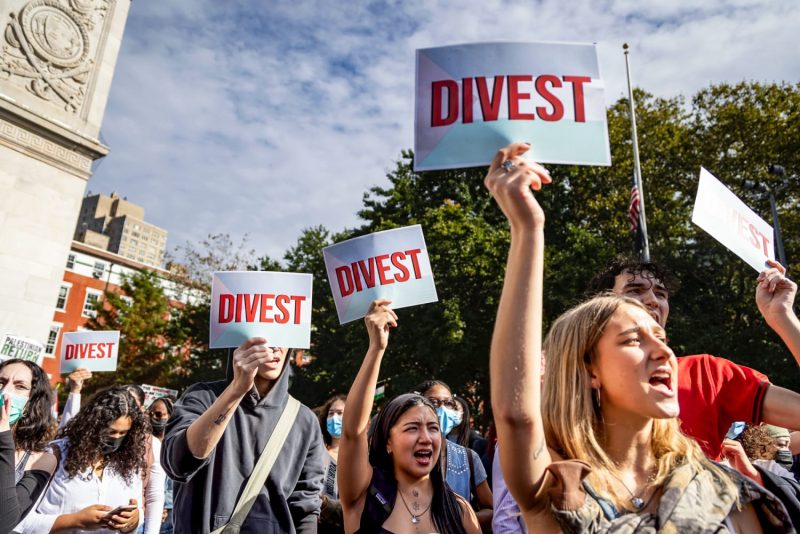Divestment Campaigns and their Impact on College Campuses
Throughout recent years, numerous colleges and universities across the United States are witnessing a unique kind of protest. Student activists are increasingly pressuring their educational institutions to sever financial ties with companies and organizations that they perceive as tied to or supportive of Israeli policies that have been deemed detrimental to the Palestinian people. These protesters argue that such investments, whether direct or indirect, mean their colleges are complicit in what they interpret as human rights abuses and violations of international law.
Understanding Divestment
Divestment, by definition, is the action of selling off subsidiary business interests or investments. In this context, it implies selling off all stocks, bonds, or investment funds that college or university endowments have in corporations deemed complicit in violating Palestinian rights. The aim of such actions is two-fold: first, they seek to exert economic pressure on Israel to change its policies towards Palestinians, and secondly, they aim to raise awareness about the Palestinian cause among students and staff.
The Birth and Expansion of the BDS Movement
These college protests are often located within the broader context of the Boycott, Divestment, Sanctions (BDS) movement. Inspired by the anti-apartheid campaign in South Africa, the BDS movement kicked off in 2005 with an appeal from Palestinian civil society organizations. The movement encourages individuals, corporations, and countries to cease commercial and cultural ties with Israel until it complies with certain demands concerning its treatment of Palestine and its people.
Today, the BDS movement is not only visible in the form of protests on college campuses, but it also has significant influence in other sectors, such as the economy, culture, and even professional and academic cooperation. While college protests are often more symbolic than economically impactful, their primary purpose is to foster education and awareness about the Israeli-Palestinian conflict among students and faculty.
Diverse Reactions and Consequences
Opinions toward these college protests are diverse and occasionally contentious. Some interpret them as an effective means to advocate for social justice and highlight the Palestinian cause, while others fear it can evoke an anti-Semitic atmosphere or stifle expression of pro-Israel perspectives.
It is crucial to note that the intention of these protest actions is to target Israeli policies, not the Israeli people or Jews worldwide. However, their criticism of Israel’s policies has sometimes been misinterpreted or misrepresented as an attack against Jewish individuals or the Jewish faith as a whole.
On another note, the divestment movement, particularly within academia, has been met with significant resistance. Several college administrations have rejected divestment proposals due to a variety of reasons, including concerns about the potential adverse consequences on the institutions’ finances, or a desire to stay neutral in a complex and polarized political issue.
In Conclusion
College protests for divestment from Israel are more than just a series of demonstrations; they are a prominent manifestation of the BDS movement within academic communities. These protests aim to initiate dialogues, raise awareness about the Palestinian cause, and put economic and moral pressure on Israel to change its policies. However, the interpretation of these actions and their implications remains diverse and, at times, contentious. As this socio-political issue continues to be a topic of considerable debate on college campuses, it is essential for administrations, staff, and students to encourage respectful dialogue that promotes a wide range of perspectives and a greater understanding of this complex issue.




